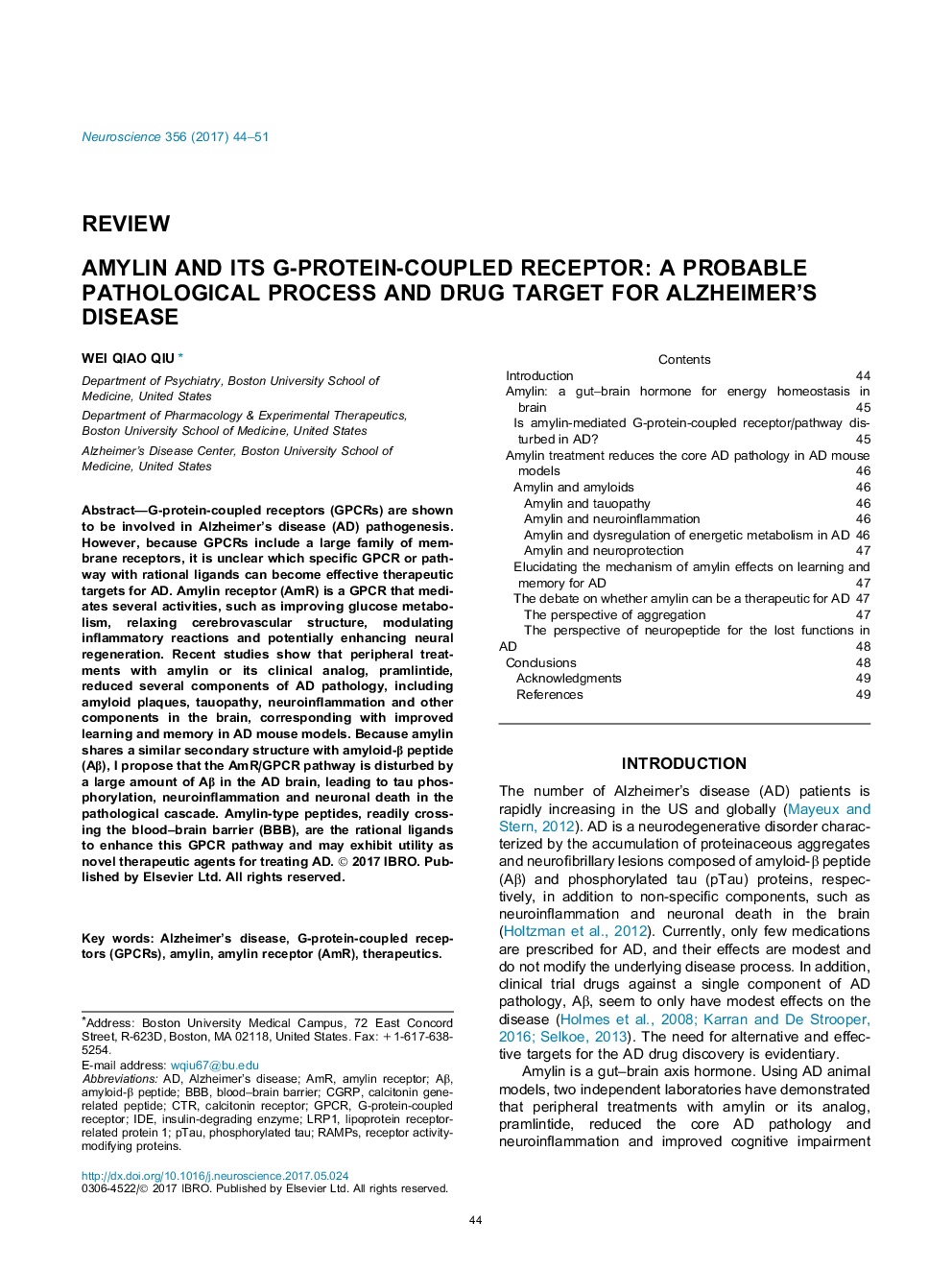| کد مقاله | کد نشریه | سال انتشار | مقاله انگلیسی | نسخه تمام متن |
|---|---|---|---|---|
| 5737418 | 1614720 | 2017 | 8 صفحه PDF | دانلود رایگان |

- Amylin is a gut-brain axis hormone and amylin receptor (AmR) is a G-protein-coupled receptor (GPCR).
- The AmR/GPCR pathway could be disturbed by a large amount of amyloid-β peptide (Aβ) in the Alzheimer's disease (AD) brain.
- When amylin aggregates, it fails to bind to AmR/GPCR.
- Peripheral amylin treatment reduces AD pathology in the brain, corresponding with improved cognition, in AD mouse models.
- Providing exogenous amylin-type peptides could be a novel therapeutic avenue for AD.
G-protein-coupled receptors (GPCRs) are shown to be involved in Alzheimer's disease (AD) pathogenesis. However, because GPCRs include a large family of membrane receptors, it is unclear which specific GPCR or pathway with rational ligands can become effective therapeutic targets for AD. Amylin receptor (AmR) is a GPCR that mediates several activities, such as improving glucose metabolism, relaxing cerebrovascular structure, modulating inflammatory reactions and potentially enhancing neural regeneration. Recent studies show that peripheral treatments with amylin or its clinical analog, pramlintide, reduced several components of AD pathology, including amyloid plaques, tauopathy, neuroinflammation and other components in the brain, corresponding with improved learning and memory in AD mouse models. Because amylin shares a similar secondary structure with amyloid-β peptide (Aβ), I propose that the AmR/GPCR pathway is disturbed by a large amount of Aβ in the AD brain, leading to tau phosphorylation, neuroinflammation and neuronal death in the pathological cascade. Amylin-type peptides, readily crossing the blood-brain barrier (BBB), are the rational ligands to enhance this GPCR pathway and may exhibit utility as novel therapeutic agents for treating AD.
Journal: Neuroscience - Volume 356, 25 July 2017, Pages 44-51